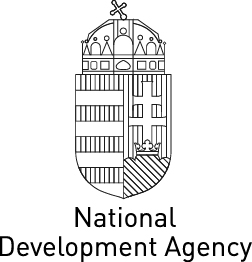Another Major Project, the Development of Waste Management in the Macro-region of Győr, Given Nod of Approval by Brussels18 November 2009
 NDA received approval from Brussels for the major project "Setting up a municipal solid waste management system at the site managed by the Győr Macro-regional Waste Management Local Government Association".
NDA received approval from Brussels for the major project "Setting up a municipal solid waste management system at the site managed by the Győr Macro-regional Waste Management Local Government Association".
Together with this decision, 13 major projects have now received a nod of approval from Brussels, whilst a further 13 major projects have been approved by the Government, out of which 11 are currently awaiting approval in Brussels.
The way in which Hungary submitted the second highest number of major projects after Poland among EU member states, although first in terms of the ratio of the total number of major projects planned demonstrates the success of Hungarian development policy. These investments are extremely significant also because of how major investments prepared to a high standard will represent responses to the challenges the building industry and Hungarian labour market is facing due to the international financial and economic crisis.
The project approved by Brussels is aimed at creating an integrated waste management system in the Central and Western Transdanubian region and introducing a selective waste collection system for recyclable material and biologically decomposing waste materials.
The major project costing a total of 9.5 billion HUF to be implemented with the help of EU funding amounting to 6.5 billion HUF will improve the quality of life of a total of 260,000 residents in 112 settlements of Győr-Moson-Sopron County, Komárom-Esztergom County and Veszprém County by treating an average volume of municipal solid waste of 130,000 tonnes per year.
The specific goal of this project relates to preventing the formation of waste and introducing a selective waste collection system in the case of recyclable and biologically decomposing waste materials. A lower volume of waste will be dumped by sorting burnable waste from mixed waste. Moreover, by separating biologically decomposing waste materials, air pollution and health risks will decrease and the size of the area used for dumping waste will also shrink.
Among others, a waste dump, a mechanical-biological treatment system, a sorting unit and a composting plant will be set up within the framework of this development.
It will become possible to ensure modern waste management that complies with national and European Union legislation in the Central and Western Transdanubian region thanks to the outcomes of this major project.

